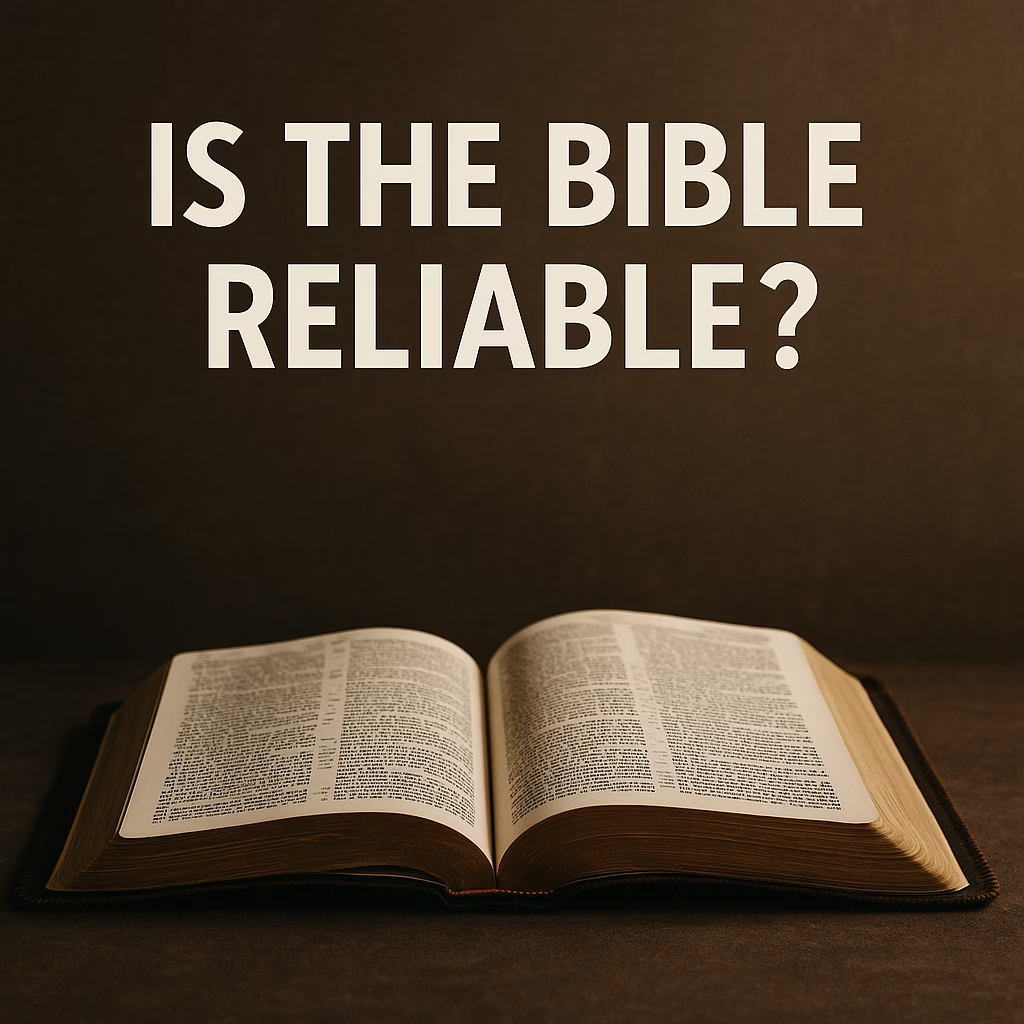A Thoughtful Look at the World’s Most Influential Book
🤔 Can We Really Trust the Bible?
Is the Bible reliable? That’s a question millions have asked, and it’s a fair one. The Bible claims to be the Word of God, but how do we know it hasn’t been changed, mistranslated, or made up over time?
Whether you’re skeptical, searching, or a believer looking to deepen your faith, exploring the reliability of the Bible is not only smart, it’s essential.
📚 What Makes a Book “Reliable”?
To assess reliability, scholars ask:
- Is it historically accurate?
- Is it textually preserved?
- Is it internally consistent?
- Is it externally confirmed?
- Does it demonstrate transformational power?
Let’s look at how the Bible holds up in each of these areas.
🏺 1. Historical Accuracy
The Bible is filled with names, places, and events that can be checked historically.
- Archaeology confirms many details: the walls of Jericho, the existence of Pontius Pilate, King David’s palace, and more.
- Ancient cities like Nineveh, Ur, and Jerusalem are confirmed by digs and non-biblical sources.
- New Testament locations, rulers, and timelines are corroborated by Roman and Jewish historians (Josephus, Tacitus).
No other ancient religious text is as rooted in history as the Bible.
📜 2. Manuscript Evidence
The Bible is the best-preserved document of ancient history – by far.
- Over 5,800 Greek manuscripts of the New Testament alone.
- Dead Sea Scrolls, dated 1000+ years earlier than previously known copies of the Old Testament, match almost exactly.
- Compared to texts like Homer’s Iliad (with only 643 copies), the Bible’s manuscript base is overwhelming.
This means what we read today is faithfully transmitted from the original authors.
🧠 3. Internal Consistency
The Bible was written over:
- 1,500 years
- By 40+ authors
- In 3 languages
- On 3 continents
And yet, it tells one unified story from Genesis to Revelation: humanity’s fall, God’s redemption, and eternal restoration through Jesus Christ.
Despite its diversity, it carries a consistent theological message, unmatched by any other text.
🌍 4. External Confirmation
Even non-Christian sources confirm the people and events of the Bible:
- Roman records verify Jesus’ crucifixion.
- Ancient writings by Josephus, Tacitus, and others mention early Christians, miracles, and persecution.
- Historical figures like King Herod, Cyrus of Persia, Nebuchadnezzar, and Pilate are all verified outside Scripture.

🔮 5. Fulfilled Prophecy
The Bible contains hundreds of prophecies, many fulfilled centuries after being written.
- Over 300 Messianic prophecies fulfilled in the life, death, and resurrection of Jesus.
- The rise and fall of empires (Babylon, Persia, Greece, Rome) predicted in Daniel.
- Israel’s scattering and return (Ezekiel 36–37) fulfilled in modern times.
No other book has this prophetic precision.
💡 6. Transformational Power
Beyond facts and history, the Bible changes lives.
- Millions testify to its power to bring hope, healing, and purpose.
- It has inspired laws, abolished slavery, and birthed schools, hospitals, and civil rights movements.
- The Bible is still the #1 best-selling book of all time, read in every language and culture on Earth.
Its endurance and influence speak to something far beyond human authorship.
🛡️ Common Objections (and Clear Responses)
Hasn’t it been changed over time?
No. Manuscript comparisons show remarkable consistency. Variants are minor and don’t affect core teachings.
Isn’t it full of contradictions?
Most “contradictions” are misunderstandings of context, translation, or genre. When studied carefully, the text is remarkably cohesive.
Weren’t the books chosen politically?
The canon developed over time based on apostolic authorship, doctrinal soundness, and widespread use, not politics.
📖 Yes, the Bible Is Reliable
The Bible isn’t a blind leap of faith, it’s a trustworthy foundation backed by history, scholarship, prophecy, and life-changing power.
If God wanted to speak to humanity, we’d expect His Word to be:
Preserved ✔️
Accessible ✔️
Transformational ✔️
Verified in history ✔️
That’s exactly what we see in the Bible.
So when someone asks, “Is the Bible reliable?”—the evidence invites a confident and thoughtful YES.







I went over this web site and I think you have a lot of excellent info , saved to fav (:.
I like this weblog so much, saved to fav.